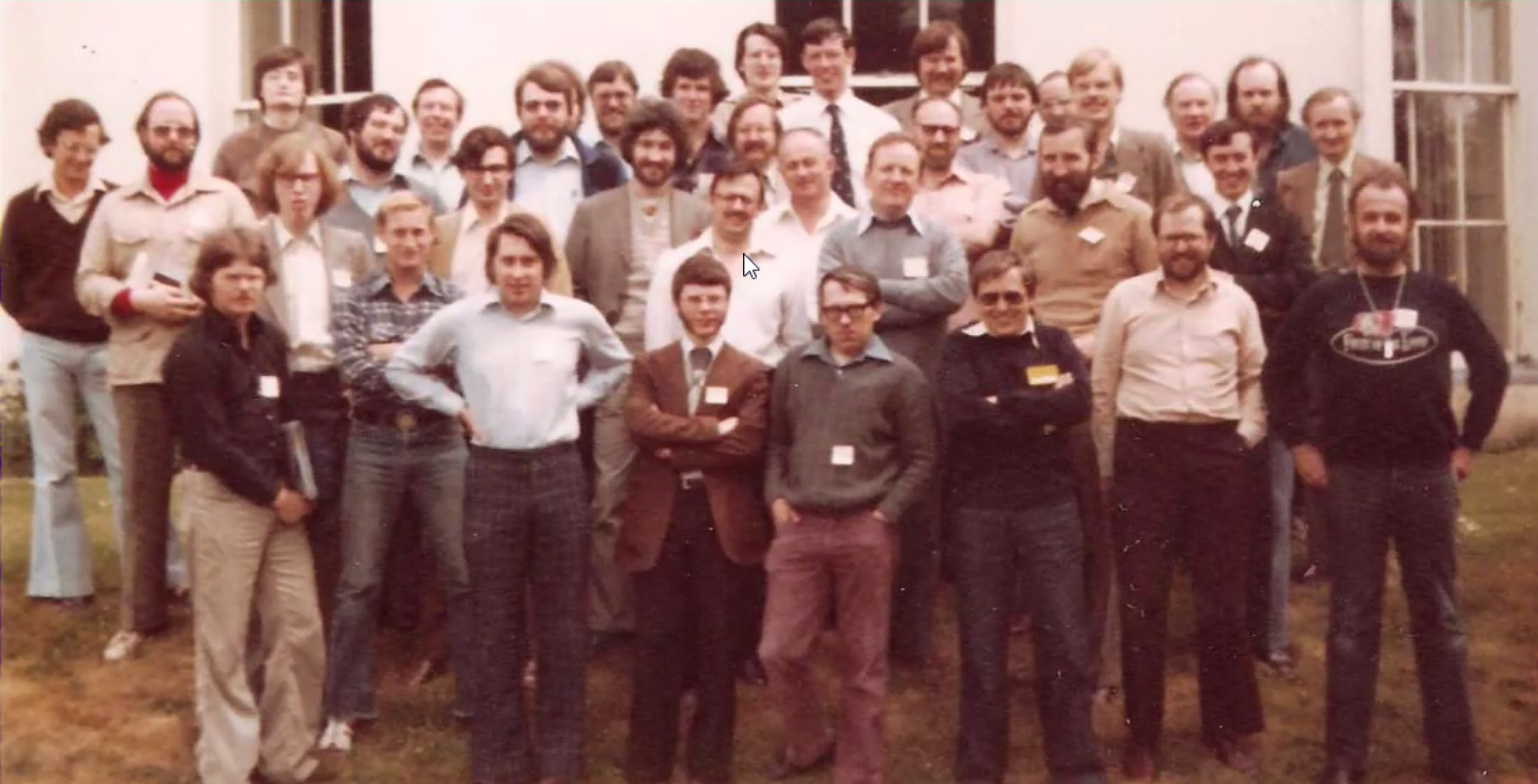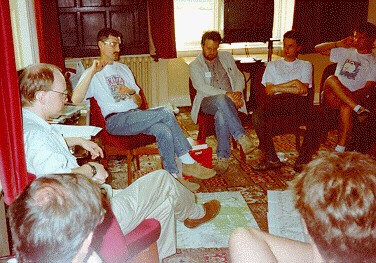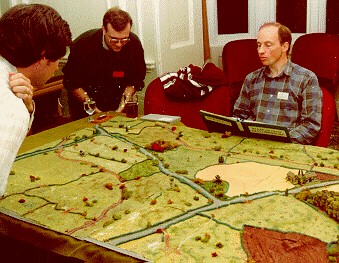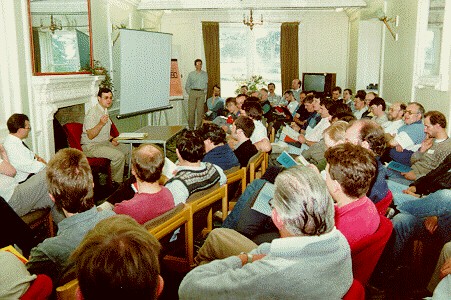Our History
By Paddy Griffiths
Wargame Developments was the product of a conference held at Moor Park College, in Surrey, in the spring of 1980. The conference was called “New Directions in Wargaming” and it brought together a number of wargamers with the aim of looking around the hobby and making suggestions as to how it might be improved, or how new types of game might be created.

The Moor Park Conference was my brainchild, and it arose from a number of different trains of thought which were chuffing around in my head at that particular time:
- There had never been, apparently, a meeting of wargamers with the sort of aims envisaged here. The normal wargame convention was not designed to promote deep discussion on the hobby, but rather to show off physical artefacts and finished games. Maybe a residential weekend could be different.
- In a long and stimulating correspondence with Andy Callan and in debate within Don Featherstone’s “Wargamer’s Newsletter”, I had become aware of many unsatisfactory features of the hobby. Sensible military history did not seem to be played very much, and game mechanisms often seemed to be over-complex and unplayable to all but the obsessional zealot. In addition to this I was interested in clarifying my mind about the morality of wargaming, since it raised many important questions which wargamers seemed unable or unwilling to face. The Moor Park Conference was therefore intended to produce some solutions to problems of all these types, or if not solutions then guidance for future progress.
- I had previously run a number of small events (weekend wargames, evening classes on wargames etc.) which had convinced me that many intelligent wargamers existed who enjoyed discussing these problems. I had also found that the process of discussion could produce valuable and unexpectedly practical results. “Talking Wargames” was not only a pleasurable activity in its own right, but it could materially add to our practical activities. Many possible game structures could be imagined which had apparently never been tried out, but which a little thought might bring into fruitful bloom!
- I was aware that the recreational wargaming hobby was by no means the only set of people active in wargaming. Military professionals, schoolteachers, re-enactment societies were all in the same field and could all perhaps teach us useful lessons which we could adapt to our own ends.
The conference seemed to agree with most of these assumptions, and before it had finished we had established a society called “Wargame Developments” which should have two main functions - the production of a regular magazine to discuss the subjects of interest to us, the “Nugget”, and the organisation of regular residential conferences similar to Moor Park. We also recognised that local, partial or extraordinary meetings might be called to help keep members in touch with each other. A distinct need was felt to “stick together” in the face of the majority of people in the hobby whose aims we did not share.
Andy Callan’s keynote speech at the conference seemed to sum up much of our thinking on this when he drew a distinction between wargamers who come to our hobby from a genuine interest in military history and the culture of past ages, and those who are in it just for competitive gaming with colourful “chess pieces”. He showed how the latter were in the majority in the hobby and how the needs of their type of game caused a great deal of violence to be done to history. The idea of “cross cultural games”, for example, in which Ancient Greeks could happily fight Medieval Crusaders, was historical nonsense. What we in Wargame Developments had to do, he suggested, was to work towards games which were not historical nonsense and which satisfied people whose interests extended beyond merely competitive or competition gaming.
And that, I believe, is what “WD” has tried to do ever since.
Editors’ Note
This article was originally published in the first edition of The Wargame Developments Handbook and was reprinted in the second edition. Dr. Paddy Griffith, the founding father of WD, sadly died in 2010. A brief biography can be found here https://en.wikipedia.org/wiki/Paddy_Griffith.
You can also find this article in the WD Handbook.
Some pictures from earlier COWs.



